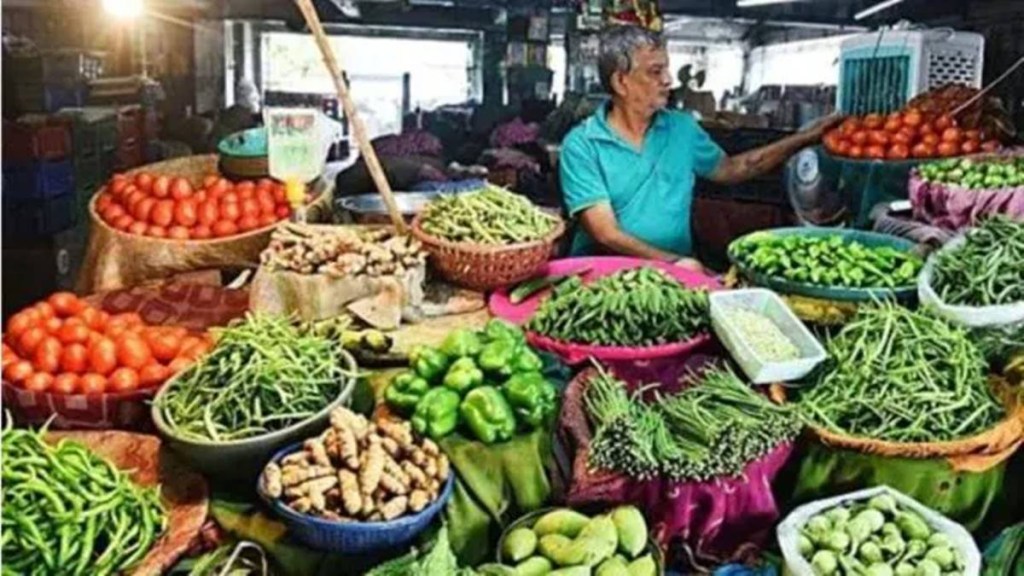With food prices continuously sliding down, India’s Consumer Price Index (CPI)-based inflation or retail inflation for the month of February is anticipated to have dropped further to around 4 per cent. According to a Reuters poll conducted among 25 economists between March 4 and March 10, CPI inflation likely has fallen below the Reserve Bank of India’s (RBI) medium-term target of 4.0 per cent for the first time in six months. The poll stated that February CPI inflation is expected to be at 3.98 per cent in February.
Another poll by Bloomberg also maintained that the CPI inflation is projected to come in at 3.98 per cent in February, led by lower vegetable prices.
Food inflation, which accounts for nearly half of the inflation basket, has witnessed a consistent slowdown due to the influx of fresh winter produce into markets over recent months. An analysis report by BofA Securities said that food prices are expected to decline incrementally, largely due to lower vegetable and meat prices, along with lower dairy and rice prices. For FY25, BofA Securities forecasted headline CPI inflation at 4.8 per cent while it projected inflation to edge down to 4.1 per cent in FY26.
Retail inflation was at 4.25 per cent in January with food inflation at 5.22 per cent. CPi inflation was last below 4 per cent in August 2024, when it came in at 3.65 per cent.
Government data on consumer price index-based inflation for February will be released today (March 12). This is the last retail inflation data before RBI’s Monetary Policy Committee next meeting scheduled for April 7-9, wherein the central bank is expected to go for another rate cut.
How will vegetable prices fare?
Vegetable prices have fallen sharply in the last three months on account of higher supplies, especially for potatoes and tomatoes and according to economists, there are still chances of further decline in vegetable prices diminishing going forward.
“We observe a continued decrease in vegetable price increases. Moreover, we are also witnessing a decline in pulse prices as well as cereals, which are typically the most persistent components of food inflation due to their less frequent harvest cycles,” said Gaura Sengupta, chief economist at IDFC First Bank.
Rahul Bajoria, Head of India and ASEAN Economic Research, BofA Securities, said, “For February, our vegetable price tracker is still down, but is likely to fall 3.5 per cent in our projections. The big decline amongst staples has been seen in pulses, while dairy, sugar, and edible oils are moving slightly higher.”
Meanwhile, core CPI, which excludes volatile items such as food and energy, according to BofA Securities estimates, is expected to remain rangebound at 3.83 per cent YoY. This will be on the back of marginally higher gold prices, and some pick up in core services as well.
